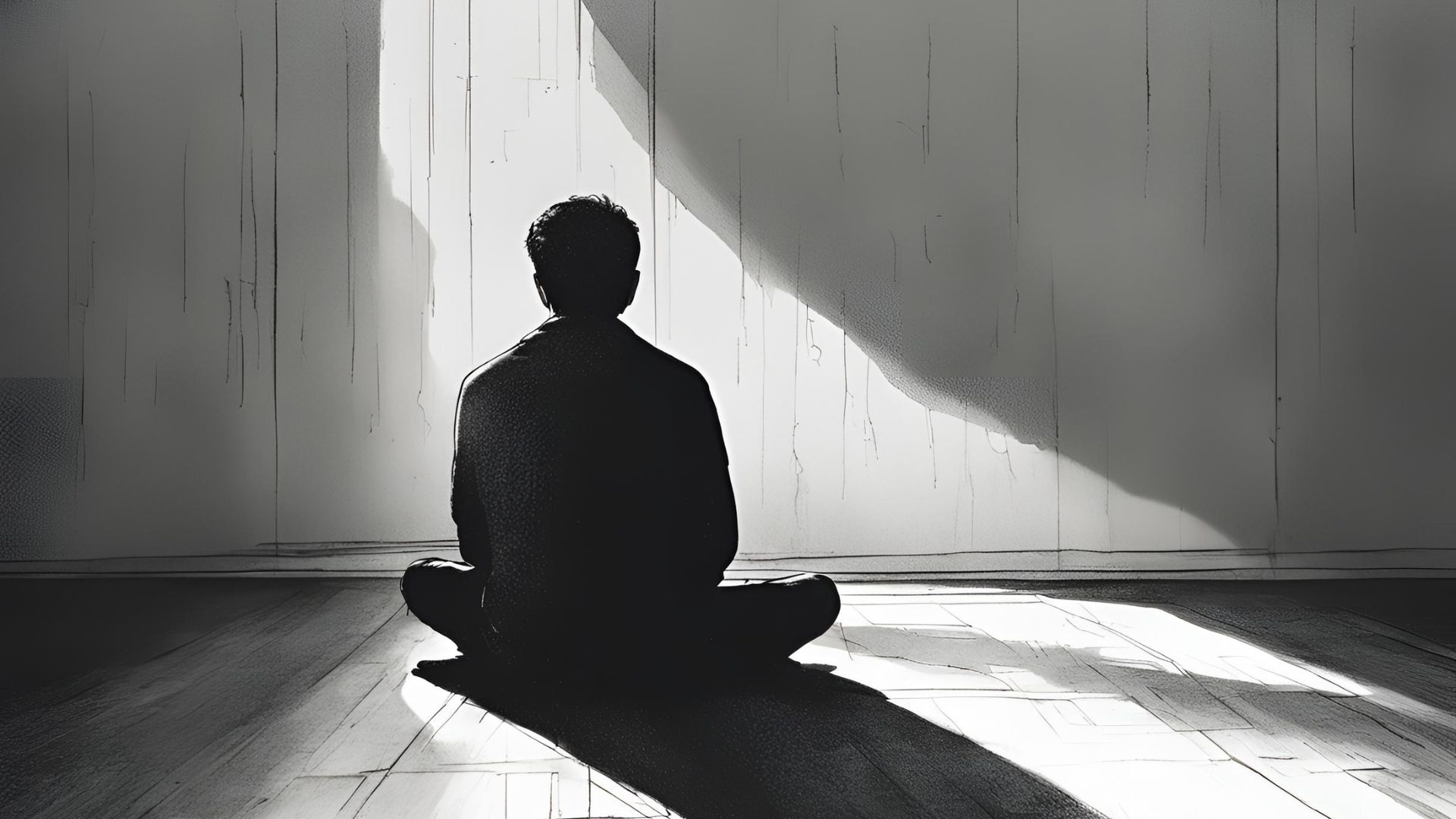Grief: the guest nobody wants at the party, but somehow, it shows up anyway. Last weekend, my friend walked into my life carrying a suitcase packed with all her problems, and let me tell you, that suitcase was heavy. She was drowning in a sea of uncertainty, and as much as I wanted to throw her a lifeline, I had no idea how.
I could listen, I could offer some heartfelt advice, but there’s nothing quite like seeing someone lose themselves in their grief. It’s like watching a ship sink slowly, and it broke my heart. Her pain was a painful echo of what I’ve been through, and that’s when I realized just how grief works its magic—not only does it devastate the person going through it, but it sneaks up on those who love them, too.
Stage 1: Denial – Pretending Everything’s Fine (Spoiler: It’s Not)

I could tell it wasn’t real belief, but I was still right there, nodding along with her, like, “Yeah, sure. You’ve got this.” I wasn’t trying to lie to her—I just wanted to believe that things would work out too. After all, what kind of friend wouldn’t want to offer that little slice of optimism? But here’s the thing about denial: it’s a defense mechanism. When things get too heavy to face, you retreat into this little bubble of hope, hoping that things will magically improve. It’s like wearing blinders in a fog—it makes the world feel a little more manageable, but it doesn’t stop the truth from lurking right around the corner.
Of course, as denial tends to go, it wasn’t long before reality hit. Denial may keep things at bay for a while, but it can’t hold your troubles off forever. The bubble bursts, and you’re left with the truth. And let me tell you, when it comes crashing down, it’s a lot harder to handle than if you’d just confronted it head-on. It’s like trying to hold a beach ball underwater—it’s exhausting, and eventually, it pops up.
Stage 2: Anger – The Inner Hulk Comes Out

Now, my friend wasn’t out here smashing things like the Hulk, but I could see her frustration bubbling over. She ranted, raved, and vented her sadness—feeling abandoned, questioning life’s unfairness, and honestly, just wishing the world would cut her a break. It was hard to watch, and I wanted so badly to fix it, but grief has a funny way of disguising itself. What looked like anger was just a cover-up for her hurt. Sometimes, the only thing you can do in these moments is just nod and silently hand them a metaphorical pillow to scream into. Grief is complex like that.
Stage 3: Bargaining – The ‘What If’ Olympics

Enter bargaining, where everything could have been fixed—if only she’d done things differently. Maybe if she just talked to that person, things would be okay. Maybe if she explained herself better, everything would have fallen into place. It’s like playing the “What If” game on hard mode. You go around in circles, hoping you can fix things with one perfect sentence or gesture, but in the end, no amount of bargaining can change the past. And yet, we all play that game, don’t we? It’s a way of holding onto hope, even if it’s a little misplaced.
Stage 4: Depression – The Sadness That You Can’t Shake Off

And then there’s depression—the relentless phase of grief. It’s not like the occasional bad day or a tearful moment. For my friend, it’s the kind of sadness that hangs over her all the time, like a dark cloud that never really clears. It’s the constant weight on your chest that doesn’t ease up, the mental fog that clouds every thought. It’s not about crying all day, but it’s more like feeling like you’re sinking slowly into a pit that you can’t climb out of.
The hardest part is that there’s no “quick fix.” It’s not like telling someone to just “snap out of it.” Grief isn’t like that. It’s not a passing storm or an occasional storm. It’s the unrelenting fog that never lifts, leaving you in a constant state of exhaustion. And watching someone you care about go through it is tough because there’s nothing you can say to make it better. The only thing you can do is just be there. Let them sit in their sadness, give them the space they need, and remind them that it’s okay to not be okay. Grief, in this form, isn’t about moving forward quickly—it’s about holding on until the fog lifts… even if it takes a while.
Stage 5: Acceptance – Making Peace With The Chaos

And then, the magic word: acceptance. Now, let’s be clear—this doesn’t mean everything is suddenly fine and dandy. It’s not about waking up one day and saying, “Hey, I’m totally cool with everything.” No, it’s more like learning how to live with the chaos. My friend hasn’t fully reached this stage, but I can see her beginning to accept that things won’t be the same. And guess what? That’s okay. It’s not about “getting over it”—it’s about finding peace with what is. Moving forward is a process, and sometimes, it’s just about taking one tiny step at a time.
Supporting someone through grief isn’t for the faint of heart. There are no magic words or perfect solutions. But if you understand the five stages of grief, you can offer a little more empathy and a little less awkwardness. If you’re the one comforting someone, just be there. Let them feel their feelings without judgment. Give them space, but also be ready when they’re ready to talk. Grief is a messy, unpredictable rollercoaster, but the best thing you can do is hold on tight, offer your hand, and just keep going—together.










